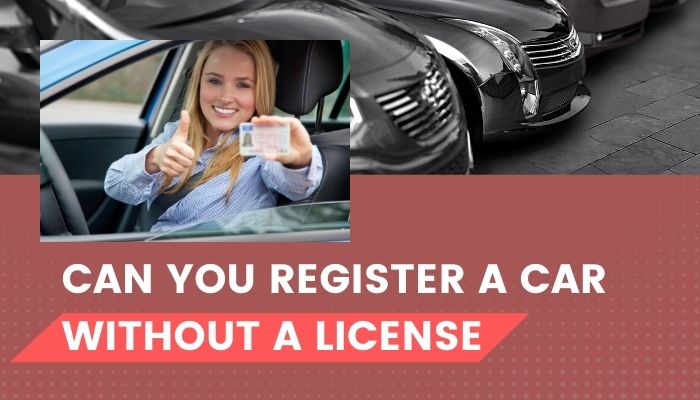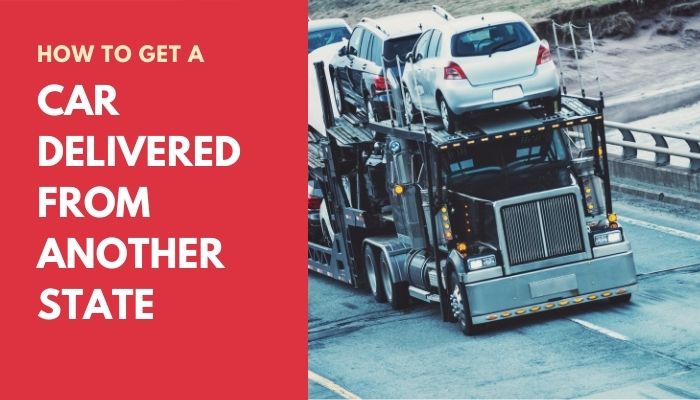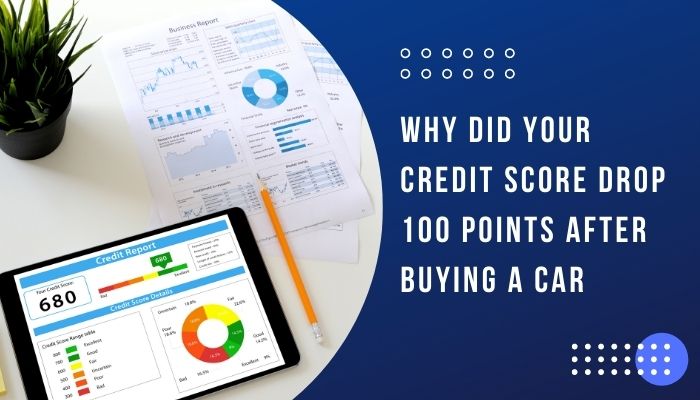How To Buying A Car Out Of State From a Dealer?
The Internet has brought many possibilities. You no longer need to be confined to your local options, especially when you can get better deals and selections out of state. Buying a car out of state from a dealer can help you find your dream car at better prices. In today’s automobile industry, where manufacturers offer special discounts in different states, it has become necessary to broaden your search outside of your local area.
By taking advantage of the internet and listing websites, you can search the entire country to find a car that best fits your budget and preferences. Whether you need to buy a car with a credit card, or you have bad credit and you are looking to buy a car with no credit check, you no longer need to restrict your search locally. This guide on buying a car in another state will help you save money and broaden your automobile possibilities.
Is Buying a Vehicle Out of State a Good Idea?
Maybe you cannot find what you are looking for in your state or a dealer in the neighboring state has a special offer that offers great savings, bringing you to question whether buying a car in a different state is a good idea. The answer depends on the factors surrounding your need to buy a car in a different state. Buying a car in another state has its own pros and cons that you should consider before opting for the transaction.
Some of the pros you will enjoy by choosing to buy a vehicle out of state include:
- A larger pool of dealerships – Buying a car out of state from a dealer offers greater possibilities. Not restricting your search locally means that you have access to a larger pool of dealerships that you can include in your search, enabling you to benefit from improved competition.
- Larger inventory – Being open to buying a car in a different state enables you to have more choices. Some dealers only stock a specific model and trim, making it possible to find a trim or model that you cannot find locally.
- Local deals – Manufacturers tend to customize their deals based on a specific state’s performance. It is common to find manufacturers offering attractive offers in specific states that are not available nationally.
- Market dynamics – Different markets have unique dynamics that make a specific model popular or unpopular in the area. Markets with surplus inventory will offer discounts and favorable selling terms to encourage buyers to purchase the model. It does not make sense to buy a model expensively in your state because it is in demand while you can buy it at a great discount in a neighboring state.
Although you can save a lot of money when you buy a car out of state, it is not usually without a few challenges.
Some of the difficulties you should be prepared to overcome include:
- Complexity – The process of buying a car in another state is more complicated than when buying locally. Buying a car from a dealer locally is straightforward as you only need to walk into the store and the company will deal with all the paperwork. That benefit is not available when buying out of state. You will have to research your state’s sales tax, emissions requirements, and registration.
- Transportation – Once you purchase the vehicle, you will have to transport it to your state. Driving it home is straightforward with a few worries when you are buying from a neighboring state but it may not be feasible when you are purchasing from a faraway state.
- No sales tax benefit – Buying an automobile out of state does not offer any tax savings as you will need to pay your local state’s sales tax. You will need to ensure that the deal makes sense once you pay sales tax and factor in transportation costs.
- Buying used cars offers greater risk – Imagine traveling to another state only to find the car is not in the condition you expected? On the other hand, buying a second hand without a thorough inspection comes with a greater risk.
Things to Consider When Buying a Car in a Different State
You should be prepared to handle all the complexities that surround buying a vehicle out of state. The biggest mistake you can make when purchasing your dream model out of state is starting the process without knowing what to expect. Understanding what you should expect before you start the procedure can relieve some of the challenges and make the purchase process stress free. Some of the things you should research beforehand include:
1. Sales tax
You will have to pay sales tax in the state where you will register the vehicle. Some people make the mistake of buying a car in states that do not charge sales tax hoping to benefit from tax savings, only to find they will need to pay tax in their state. You should check with your state’s Department of Motor Vehicles to understand the local policy as most states require individuals to pay sales tax in their state of residence.
2. Emissions
You will need to check your state’s emissions requirements, as different states have different policies. California has the standards very high when it comes to car emissions. Your car will need to pass the California Air Resources Board (CARB) to get registration approval.
You will also need to note that other states like Maine, Connecticut, Massachusetts, Maryland, New York, New Jersey, Rhode Island, Pennsylvania, New Mexico, Vermont, Oregon, Arizona, and Washington have adopted the CARB strict standards. Before you buy a vehicle out of state, you should check on the door jamb or under the hood for a label that confirms the car is emissions-compliant in all states.
3. Registration
The rules require you to register your vehicle in your state, but you cannot drive without registration. Driving it home will not be possible unless you can get temporary registration. Buying a car out of state from a dealer will come in handy in helping you get temporary registration.
However, you will need to apply for the temporary registration yourself if you are buying from a private seller. Research on details you need to register your vehicle like vehicle identification number and verification form.
4. Car insurance
Look at your current insurance to find whether you need to get new coverage for your new car. Some insurance companies extend your current coverage to a new vehicle purchase, but you will need to inform the provider within a certain timeframe.
You will need to check whether your provider offers an extension before purchasing the automobile. You will also need to consider the lender’s requirements if you are financing the vehicle, as some financial institutions prefer certain covers like comprehensive and collision insurance.
How To Buying A Car Out Of State From a Dealer?
Step 1: Get a vehicle history report
You should never purchase a vehicle without seeking a vehicle history report from a reliable source. A car report history is more important when you are buying from a different state. It helps you confirm that the vehicle does not have any issues before changing ownership. Make sure the car does not have a lien on the report before finalizing the deal.
Ask the seller to take care of all issues in the document before talking ownership, as you will take the responsibility if you buy with existing aliens. Also, look out for an open recall and ask the seller to take care of it before you can complete the purchase.
Step 2: Seek pre-purchase professional inspection
If you can travel, you should physically inspect the car to ensure it is in a good condition. You should also take it for a road test to have a feel of the driving experience. If the car is alright, you should take it to a mechanic for a thorough inspection. A thorough inspection will help you find existing, previous, and possible issues that can affect the driving experience.
A mechanic will help you know whether spare parts have been replaced with low-quality parts or whether the car has an underlying problem. The data from an inspection will not only help you know the state of the vehicle, but it will give a competitive edge when negotiating price. If you cannot travel to have a physical inspection, you should hire an independent professional repair store to inspect the vehicle thoroughly.
Step 3: Ensure it meets state requirements
Before starting the purchase process, you should have all details on your state’s requirements on emissions, safety, and odometer, among other existing inspection policies. You should also have all the paperwork and forms of identification needed for registration. It will be an expensive mistake to buy a car, only to find that you cannot register it in your state.
Step 4: Pay for the vehicle
Once you are satisfied that the car is in good condition, it does not have mechanical problems and it meets all your state’s inspection requirements, you can complete the transaction.
Step 5: Arrange transportation
You can hire a transportation service to bring your car to your state or you can choose to drive it home. Driving it home is ideal if you are buying from the neighboring states. When choosing a transportation company, you will need to factor in the distance and cost. Over a short distance, driving your car home is a better deal. If you choose to drive, you will also need to get temporary registration.
Step 6: Pay sales tax
If you are not a resident of Alaska, Montana, Delaware, Oregon, or New Hampshire, you will need to pay your car sales tax. Contact your state’s Department of Motor Vehicles to understand your tax obligation. Most states require car buyers to pay a sales tax at their home state.
Step 7: Register the vehicle
Find out how long you have to register the vehicle in your state. Different states have different rules on car registration with some taking as few as 30 days while others have a longer period. Sort out the title and registration as soon as possible as it can impact financing and insurance.
Step 8: Get the car insured
The last step is ensuring that the car is fully insured. You should contact your insurance company to get a clarification on whether your current insurance policy covers a new purchase. If not, get the right insurance cover for your automobile, taking into consideration insurance limits and deductibles.
What Should You Not Do When Buying a Car From a Dealer?
Dealerships can help make your car purchase less problematic by taking care of the paperwork and other requirements. However, you should look for signs that the dealership is trying to influence your opinion or quicken the decision-making process. Your aim should be to get a good deal involving the right car at the best possible price. To make sure you are on top of the transaction, you should not:
- Walk into the dealership without a plan
- Allow sales agent to coach you into a specific car
- Talk about a trade-in too early
- Give the dealership your license or car keys
- Allow the dealer to check your credit history before making a decision as it can negatively affect your rating
- Focus your negotiations on monthly payments
- Get pushed to buy the vehicle immediately
Conclusion
Buying a car out of state from a dealer is not as difficult as it may seem. You only need to understand your home state requirements on registration, emissions, and sales tax to witness a smooth transaction and enjoy the benefits of buying a vehicle out of state, like better deals, prices, and promotions.
Frequently Asked Questions (FAQ)
Do you pay taxes twice if you buy a car out of state?
No. Most states require car buyers to pay sales tax in their home state.
Does it cost more to buy a vehicle out of state?
No. Buying a car out of state is usually cheaper than buying one in your home state, as you have access to a larger dealership pool. It helps you take advantage of geographical promotions and market dynamics that make buying the vehicle cheaper out of state than at home state.
Do dealerships finance out of state?
Yes. Dealerships offer car financing for out of state buys, but the process is different from when buying in your home state. It varies depending on your state as different states have a unique process of paying tax, license fees, and title.
Can you buy a car out of state and drive it home?
Yes. You can buy a car out of state and drive it home, but you will need to have a temporary registration. An out of state dealership can help you acquire a temporary registration.




